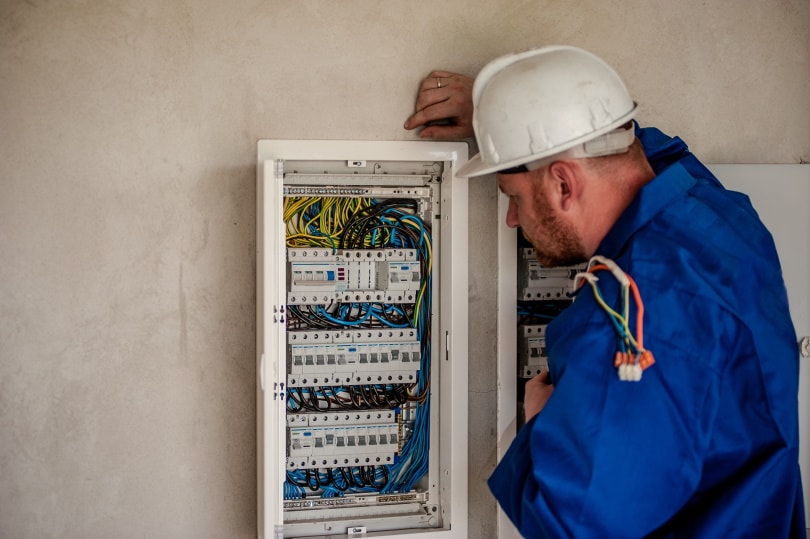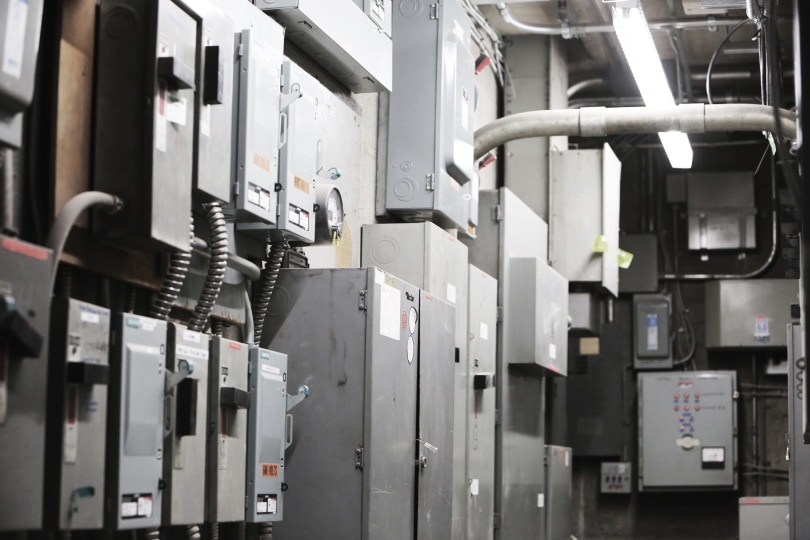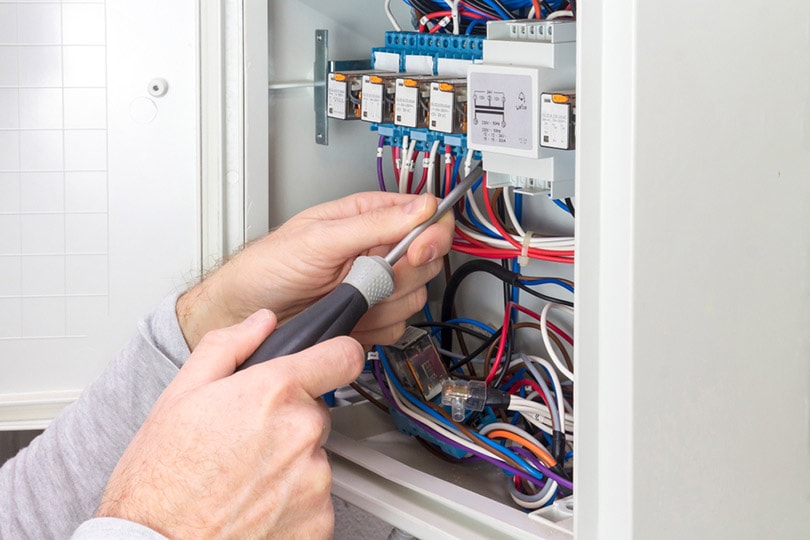Does Homeowners Insurance Cover Electrical Panel Replacement? Facts & FAQ
-
Codee Chessher
- Last updated:

Homeowners insurance is intended to help protect homeowners, but it’s not always obvious what exactly it covers. Electrical panels are often forgotten, but they’re an integral part of any home. If they malfunction or otherwise break, does homeowners insurance cover that or not?
It depends. Homeowners insurance will likely cover electrical panel replacements if the damage was caused by a covered peril under your dwelling coverage. It may also be covered if an unexpected power surge shorted the panel out. However, it won’t cover replacements for a panel that failed due to age, neglect, or improper maintenance. It also won’t cover poor workmanship, like if the electrician messed up wiring your home.
This means that if an electrical storm knocks out your power and the electrical panel gets damaged as a result, your homeowners insurance will cover a replacement panel. Similarly, you’re covered if your house catches fire and the electrical panel gets damaged. However, you are not covered if the panel shorted out because it was old or if you neglected to keep up with regular maintenance. You’re also not covered if the wiring hasn’t been updated in over 40 years, but that’s pretty rare.

What Electrical Panels Aren’t Covered Under Homeowners Insurance?
Electrical panels have come a long way, and outdated models are unsafe by today’s standards. Homes built as recently as the 1980s may have panels that are considered unsafe today, and insurance companies probably won’t cover you if you won’t update them. They’re also usually not up to current building codes. Let’s check out some of the panels that aren’t covered.
- Federal Pacific Electric (FPE) panels
- Zinsco or GTE Sylvania panels
- Split-bus panels
- Fuse boxes

Does Homeowners Insurance Cover Faulty Wiring?
Along with your electrical panel, you’re probably wondering if homeowner’s insurance covers faulty or bad wiring. As with most things, the answer is that it depends on the circumstances. It won’t cover wiring that malfunctions due to poor workmanship or repair, but the damage caused by covered perils like storms and fires is covered.
Sadly, you’re not covered if the wiring was faulty to begin with. This is because of the language insurance companies use in their contracts—homeowner’s insurance doesn’t cover wiring damaged by defects or workmanship. However, builder’s insurance typically covers this issue.
Homeowners insurance also doesn’t cover some types of wiring that are determined to be a risk. Usually, this means aluminum, cloth, as well as knob and tube wiring. While these are outdated, some older homes still have them. If you won’t pay to update your wiring, companies are within their rights to refuse coverage.

How Long Do Electrical Panels Last?
While electric panels in the past had relatively short lifespans, today they’re made to last 30–50 years under ideal conditions. You can typically tell when your panel is at the end of its lifespan because your electricity may malfunction. Let’s check out some telltale signs you should look out for.
Telltale Signs You Should Replace Your Electric Panel
- Sizzling or popping noises coming from outlets
- Flickering lights
- Frequently blown fuses
- Appliances overloading your electrical system, possibly causing brownouts


Conclusion
Electrical panels are a critical part of any home, and it’s important that you have them checked every 10 years by a qualified and licensed electrician. Panels damaged by covered perils like storms, home fires, and tornadoes are typically covered under homeowners insurance. Unfortunately, malfunction due to neglect, wear and tear, or improper repair aren’t covered, and you’ll have to pay out of pocket for a replacement.
Featured Image Credit: Piqsels
Contents
